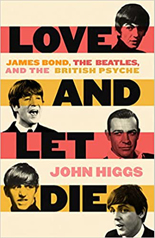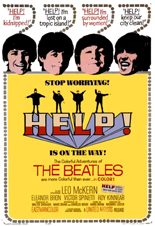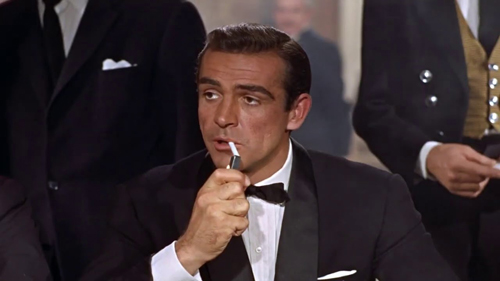
 On Oct. 5, 1962, two titans of popular culture were unleashed to an unsuspecting public: Beatles records and James Bond movies, in the respective form of “Love Me Do” and Dr. No. Whether the result of kismet, fate, dumb luck or preordained from the heavens, this much is incontestable: Although born in Great Britain, these fraternal twins today belong to the world.
On Oct. 5, 1962, two titans of popular culture were unleashed to an unsuspecting public: Beatles records and James Bond movies, in the respective form of “Love Me Do” and Dr. No. Whether the result of kismet, fate, dumb luck or preordained from the heavens, this much is incontestable: Although born in Great Britain, these fraternal twins today belong to the world.
Brighton-based author John Higgs tracks how both were able to achieve the near-impossible — on often-perpendicular paths, no less — in the wonderful new book Love and Let Die: James Bond, The Beatles, and the British Psyche.
From the acrimonious Phil Spector to the acronymous SPECTRE, the similarities along the way are mind-blowing. But this is hardly some Lincoln/Kennedy-style listicle. Rather than merely drawing parallels between his two subjects, the author seems more interested in examining their differences on such stances as class structure and racism.
Even topics that hardly shake the earth are considered — including sports, hairstyles, intoxicants and transcendental meditation — as Higgs chronologically mines history, showing how Bond and The Beatles influenced this ever-changing world in which we live in.
Although Love and Let Die is not a salacious book, sex plays a large part in the story. How could it not? It’s present from the start, revealing the BDSM proclivities of 007 creator/virulent racist Ian Fleming. Higgs even notes Fleming’s first novel, 1953’s Casino Royale, referring to a potential tryst of Bond’s as possessing “the sweet tang of rape.”
 With that style of misogyny galore, George Lazenby’s final test for securing the Bond role in On Her Majesty’s Secret Service shouldn’t come as a shock, and yet it does: Producers watched him have sex with several hired hookers “to make sure that he wasn’t gay.”
With that style of misogyny galore, George Lazenby’s final test for securing the Bond role in On Her Majesty’s Secret Service shouldn’t come as a shock, and yet it does: Producers watched him have sex with several hired hookers “to make sure that he wasn’t gay.”
On The Beatles’ side, I certainly knew each member had his womanizing ways. But I didn’t know — or need to know — about their early-days group masturbation sessions. (Fap Four, anyone?) If Paul McCartney’s candor there is outrageous, miserable asshole John Lennon later outdoes him by sharing regret in not balling his own mother after grabbing her breast as a teenager. (Imagine!)
With more than a little help from that story and others, Higgs succeeds in explaining why Lennon’s reputation as the “genius” Beatle wasn’t exactly well-earned, while restoring the luster of the others. He does several things right throughout Love and Let Die‘s pages, including not ignoring Operation Kid Brother (although many would) or 1967’s ill-fated all-star “comedy” version of Casino Royale (although many should). —Rod Lott

